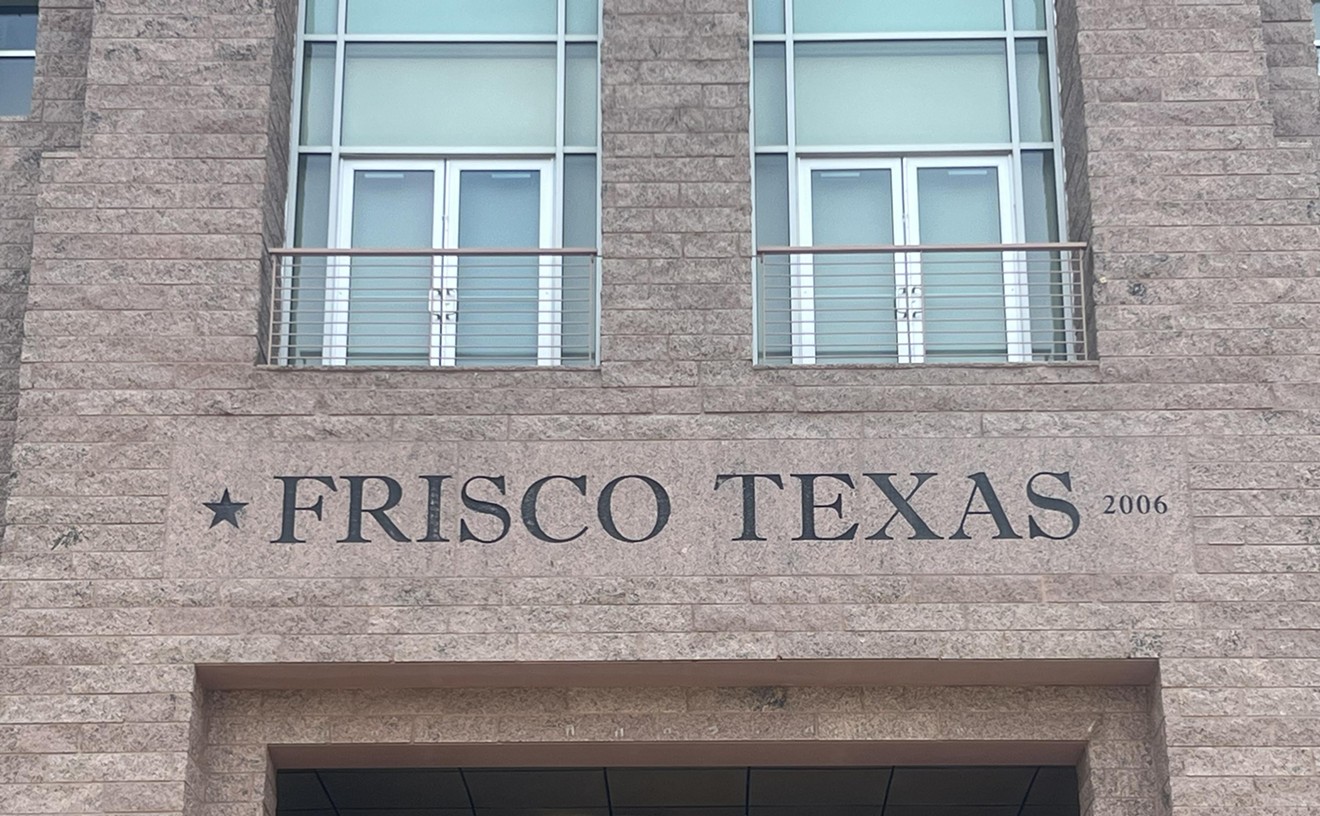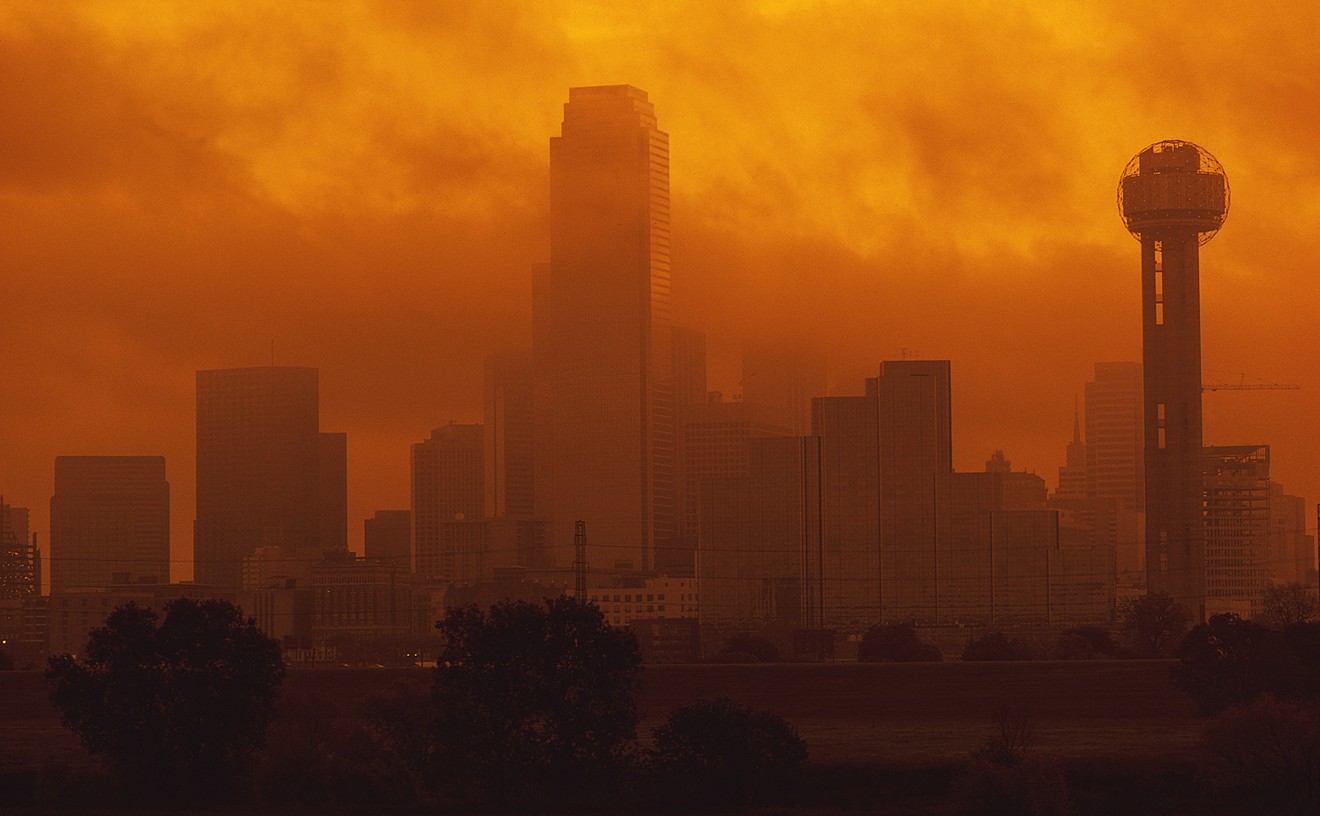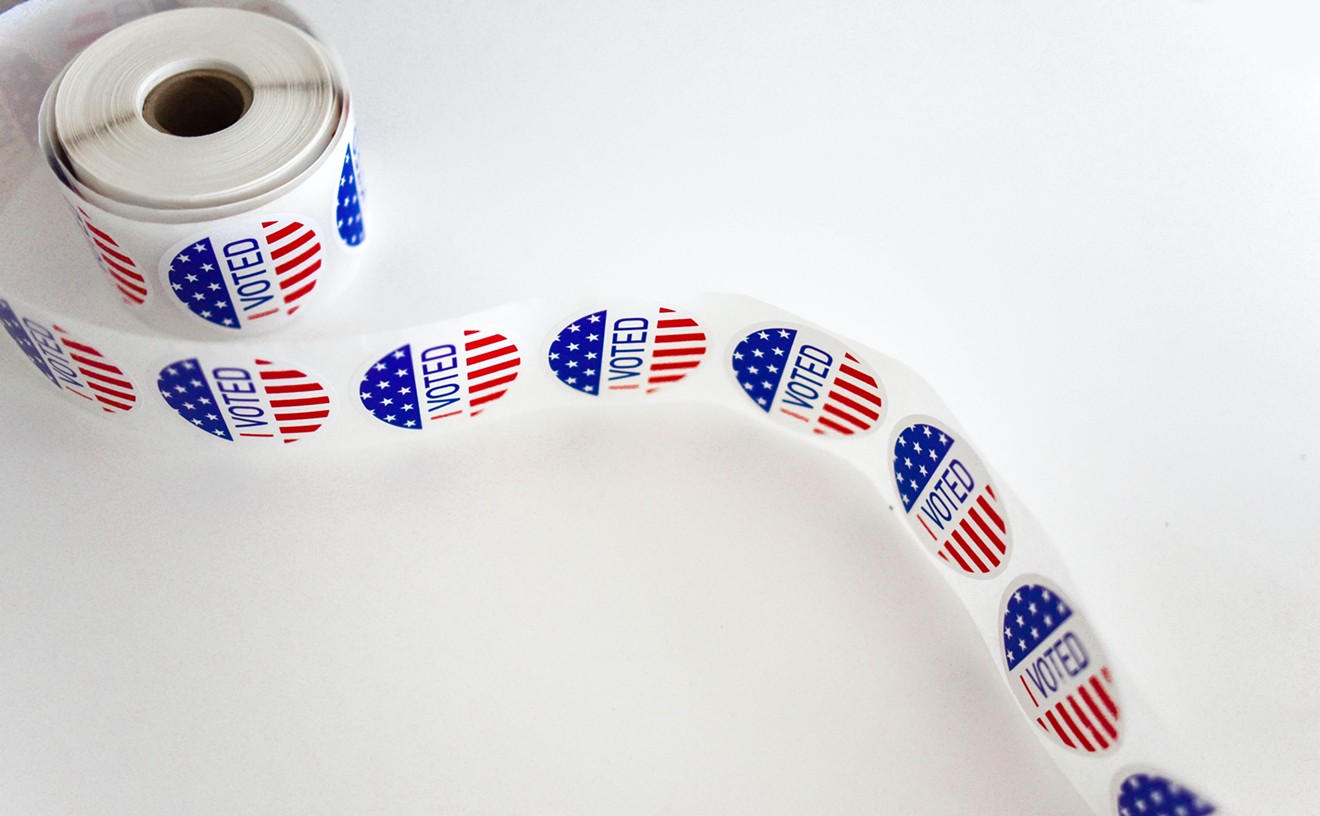Here's a question about the big initiative to spur development and employment in the city's heavily poor and minority southern hemisphere. Does it really benefit southern Dallas to redevelop it if before you do so you manage to get all the land out of the hands of the people who own it now?
We're trying to make conditions better for what? Just the real estate? Or the people?
Whether it's true or not (I've never seen a study), common belief in Dallas is that white mayors 40 years ago bought bare dirt land north of the city, browbeat Dallas into annexing it and then screwed the city into providing all the infrastructure -- water, sewer, cops, firehouses -- needed to create the swimming pool and golf course megalopolises up there now.
We know for sure that a couple of them, Mayors Robert Folsom (1977-81) and Starke Taylor (1983-87) bought a lot of land up there. We know the city annexed the land they bought. We don't know how much the mayors paid versus how much the city paid to turn a bunch of burnt-over cotton patch into the endless Trophy Estates Rolling Meadow Mountain Crest mess that's up there today.
Lately there has been endless hooplah from Dallas Mayor Mike Rawlings and interminable blah-blah-blah from The Dallas Morning News about something called "Grow South," an initiative to do for southern Dallas what somebody did for that northern cotton patch four decades ago -- make it happen. That is, bring in the infrastructure needed to make development possible.
But unlike that cotton patch the mayors bought back in the day, southern Dallas is already inside the city limits. So how much can they need? Oh, you wouldn't believe how much they need. Few Americans accustomed to living in cities would believe it.
I have been talking over the last year or so to landowners who hold large parcels just west of the handsome new campus of University of North Texas at the intersection of East Camp Wisdom Road and University Hills Drive (Houston School Road) eight miles due south of downtown. Among the things they do not have anywhere near their entire region of Dallas are water and sewerage.
In 2005 when the new campus was under construction, UNT expressed its wish that the city would take advantage of some scheduled roadwork and existing bond money and bring water and sewers to the campus. But for reasons nobody ever really explained at the time, the city tore up Houston School Road and rebuilt it without putting new sewer and water pipes under it at that time. UNT had to go the other direction and some distance to find a sewer connection and water.
Now the city is sitting on $5 million in bond money passed for the express purpose of bringing water and sewers to this long-neglected portion of the city. But in spite of all the talk about "Grow South," City Hall refuses to bring utilities into the area west of the UNT campus to put it on an equal footing with the rest of the city.
I attended a meeting last week where DART, our regional transit agency, unveiled plans for what's supposed to be a snazzy new train station at UNT. But in response to questions, DART officials conceded they will have to put the new train station on a septic tank system, because there are no city sewer lines anywhere close enough for a connection.
Landowners at the meeting accused DART of playing footsie with the city by not demanding the city bring a sewer line to some point within a reasonable distance of the station. "You never build streets six lanes without putting basic infrastructure in the roadway," said Robert Pitre, owner of Skyline Ranch near the UNT campus. "The city of Dallas did that. They did it on purpose. They knew what they were doing. The conspiracy now is to keep basic infrastructure from the DART station to keep the owners of the land from being able to connect to it."
But why on earth would the city want go to such lengths to keep infrastructure out of an entire region? Why would the city tear up a major thoroughfare and rebuild it with no pipes underneath, knowing how much more expensive it will be to tear it up and do it all over again later, especially given that the presence of the new UNT campus makes major redevelopment of the area inevitable?
City councilman Tennell Atkins, who represents the 8th district in that area, has a not totally unreasonable answer. He says now is not the time. At some point, Atkins says, a developer will show up with a credible plan for the entire area. But before that developer shows up with a plan, Atkins says, it would be a mistake for the city to put in pipes.
"If you are sitting there with property saying, 'Bring me my water and sewer line,' that might be the wrong water line, the wrong sewer line in the wrong direction, whatever," he says. "We need a plan."
Pitre believes the city is withholding basic infrastructure to keep land values low so that some favored party can come in, vulture up the land for cheap and reap the profits when the city finally puts in the pipes. In the meantime, he says, the city is deliberately shutting down any development potential.
He says any developer he has ever talked to always asks one thing first: "They say, 'Where is the sewer line?'" When developers find out there is no basic infrastructure near enough to make an urban-scale development viable, they fade away, Pitre says. "They say, 'No, no, I'm not interested.'"
The only way to jump-start the area for urban development, he says, is to make it urban by putting in major urban infrastructure.
"The city already has the money," he says. "They know the viability of what that community could become in the development around that campus and around that DART station. It's simple to go ahead and do it. They already put it in the bond program for that. So why not go ahead and put it out there? What's your reason for not putting it out there?
Other land owners in the area agree. They say they have been pleading fruitlessly with City Hall for decades to give the area the same basic sewer and water pipes that other parts of Dallas enjoy.
"I was at a City Hall meeting when Laura Miller was still the mayor [2002-07]," said Rebecca Sneed, another longtime owner west of the campus. "I asked her about it. She said, 'Oh, I didn't know there wasn't sewer out there.' She said, 'I'll get back with you about it.' I never heard anything."
Pitre, Sneed and other owners have a lot to gain financially if basic infrastructure comes anywhere near them. They are sitting on land purchased decades ago at rural values on which they have been paying low taxes compared with rates in more urban parts of the city. Both of them were frank in telling me that if somebody stands to reap a big profit on their land thanks to city action, they'd like to be that somebody.
Sneed said, "When my dad purchased all this land, I'm sure that was his thought, to make a profit on it."
Seems fair to me. You sit on land for decades, pay the taxes, mow the weeds, do something about the trespassers and so on. Then if a big ship is about to come in, you hope to be there to meet it.
Atkins says they can all be there. All they have to do is wait. But Pitre smells a scam. He thinks Atkins and City Hall are waiting out the current owners, withholding infrastructure that's already funded in hopes the current owners will sell at the existing low values. Then someone of City Hall's choosing can come in and have a big payday.












